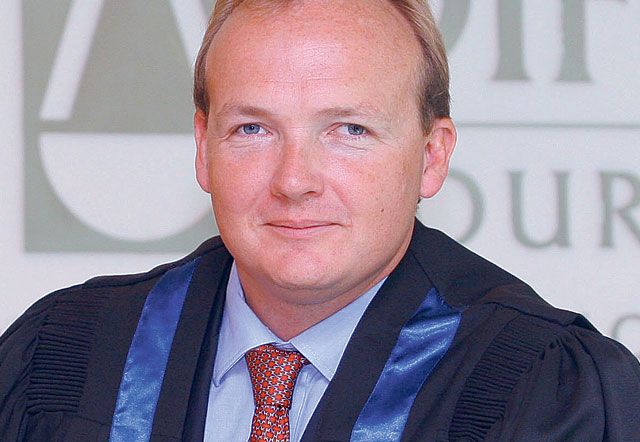Dubai: A strong, reliable commercial legal system that guarantees swift, transparent and efficient justice is crucial to any business centre, especially one seeking the types of business and investment flows that the DIFC has successfully attracted.
The DIFC has established a body of commercial and civil laws based on the best from financial centres around the world, melded to suit the needs of the DIFC and its community.
Of course such a legal framework is only as strong as the Courts that uphold it, and this is why the DIFC Courts are such a critical part of the DIFC's value propositions: Who would invest in a market where their contracts can't be enforced?.
The DIFC Courts were established in December 2004 as courts of the Emirate of Dubai under the laws enacted by the late Shaikh Maktoum Bin Rashid Al Maktoum, Ruler of Dubai.
The DIFC Courts differ from the other courts in Dubai in a number of ways, including operating in the English language, using common law principles.
We have been actively hearing cases since our inception, and since then we have quickly built a reputation as a world class judicial system.
As well as dealing with high profile disputes involving the financial transactions of some of the world's leading institutions, at the DIFC Courts we have also been supporting the Centre's small businesses and employees through our Small Claims Tribunal (SCT) service.
The SCT handles claims for under Dh100,000 and has a record for resolving around 90 per cent of cases in less than four weeks.
We have put in place arrangements to support accessible, swift and efficient justice, such as the Urgent Application facility. This offers 24 hours a day, 7 days a week access to justice through an emergency phone number.
Technology
Court room technology allows for judges and witnesses to contribute to hearings live from locations anywhere the world. In 2009 the DIFC Courts signed a protocol with the Dubai Courts, setting out the mechanism for the enforcement of each others orders and judgements and further reinforcing the cooperation between the two Courts.
We have recently implemented a Professional Code of Conduct to which all of its registered lawyers must adhere.
This is the first Code of its kind in the region and it has been well received by the UAE's legal community. Another first for us was the Pro-Bono scheme set up in October, which further promotes access to justice for those without the resources to instruct lawyers.
These best in class systems support advanced enforcement of DIFC law alongside an experienced network of Judges, which comprises a bench of eight, with over 110 years combined experience, spanning three continents and all areas of commercial dispute resolution.
Led by Chief Justice Sir Anthony Evans, former High Court Judge and Lord Justice of Appeal in England and Wales, the DIFC Courts were the first in the region to have a female judge on their bench. We also boast two resident, common law, Emirati judges.
One of the overriding principles of the DIFC Courts is to promote settlement. When disputes within the Centre do make it to a formal hearing, our efficiency saves the Centre's business further time and money, through swift and economical litigation practices.
Since handing down our first judgment, the DIFC Courts have built a strong reputation for excellence among the international legal community.
We are proud to employ such an experienced and dedicated team, confirmed at the 2009 DIFC Governor's Awards where I was honoured to win the DIFC's Distinguished New Employee of the Year Award in my capacity as the Courts' Registrar. The Courts were also shortlisted for Distinguished Project of the Year and Distinguished Department of the Year, in recognition of its achievements to date.
The Courts remain committed to continuous and meaningful development in support of the DIFC community, including the collaborative, blue-print to establish of an English-language notary office which has just been signed with the Dubai courts.
Collaborating with other courts is a key focus for us, and we have been actively working with our peers in the UAE and beyond to learn and develop. The DIFC Courts understand our role in supporting business in the DIFC and intend to continue developing our world-class judicial system to serve the needs of the community and justice.
The author is the registrar of DIFC Courts













